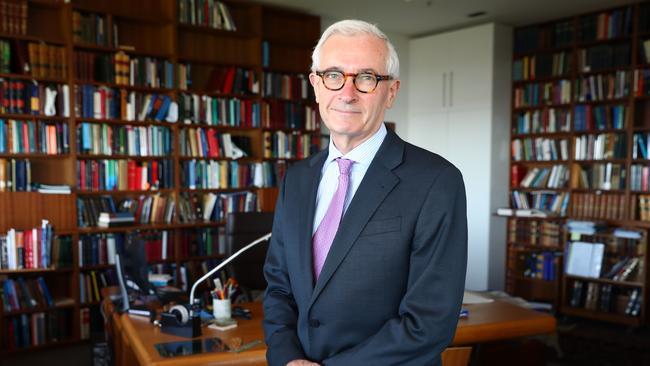Federal Court’s rule changes imperil public’s ‘right to know’
The Federal Court is shunning calls to overturn its controversial decision to restrict media access to certain legal documents, with the chief justice defending the move.

The Federal Court is shunning calls to overturn its controversial decision to restrict media access to certain legal documents, with the chief justice defending the move on the grounds that allowing “non-parties” – such as journalists – to inspect legal papers as soon as they are filed has led to “undesirable consequences”.
Last month, the Federal Court enacted new rules, without consultation, to ensure journalists could only obtain access to key information about court matters until after the case’s first hearing.
The change means journalists will no longer be able to report on initial applications and statements of claim when they are lodged with the court, as they will have to wait until the matter’s first hearing to be able to access the files.
The decision has prompted outrage from editors and journalists from media organisations across Australia, who last week wrote a letter to Chief Justice James Allsop to express their concerns over the effect the change will have on reporters’ ability to report fairly and accurately.
“It may also expose us to increased legal risk because parties may claim that our reports no longer qualify as fair and accurate reports of a court proceeding,” the letter said.
“There is also a significant risk that the filing of some important cases, especially large and complex disputes, will simply not be reported at all because the parties decline to co-operate.
“The idea that applications for access can simply wait until after the first hearing reflects a fundamental misunderstanding of how journalism works and its role in a democratic society.”
Constitutional and media law experts have also aired their alarm that such restrictions should be imposed on the free press at a time when there was a growing awareness in the community of the dangers of secrecy laws in Australia.

On Friday, Chief Justice Allsop sent a letter back to media organisations, in which he sought to explain the court’s move. “From the experience of the court, both registrars and judges, there was a problem which arose when a proceeding was commenced, a non-party inspected filed documents … and published their content before service had occurred or before a party had an opportunity to consider the documents served on them.
“One undesirable consequence of this was that a party yet to be served might learn of the proceeding against them through a media report.
“Another is where a party made extreme or scandalous allegations with the intention of causing those allegations to become public for the purposes of embarrassing or pressuring another party before any suppression application could be brought.
“Another is where sensitive, personal or confidential information is released into the public domain before a party had given consideration to whether access by non-parties to any filed documents or parts thereof should be sought to be prevented through suppression orders or otherwise.
“In the view of the judges and of the rules committee, the risk of such matters, or their occurrence, was and would be contrary to the interests of justice.”
But media lawyer Justin Quill, who acts for various news outlets, argues the Federal Court’s reasoning for its controversial rule change is actually at odds with the principle of open justice.
“It should be the other way around – it should be open unless there’s good reason to close it. This change goes against the fundamental concept of openness,” he said.
Mr Quill said restricting journalists’ access to legal documents would only invite “rumour, speculation and innuendo”.
“At a time when conspiracy theories abound, and social media is a conduit for spreading them, the way to combat them is with openness and transparency.
“So this move by the Federal Court feels like a step backwards rather than a step forward.”
Constitutional law expert George Williams said the changes were another example of the “overbearing secrecy that impedes the work of journalists and prevents the public from accessing information about which they have a right to know”.
“Something needs to change to fix the problem to reverse the trend in favour of greater secrecy,” he said.
“The presumption should always be in favour of public disclosure unless there are exceptional reasons to deny this.
“Access to the work of government, parliament and the courts should also be backed by rights of freedom of speech and of the press.”
The Media Entertainment Arts Alliance media section president, Karen Percy, said last week the changes were “utterly disgraceful”.





To join the conversation, please log in. Don't have an account? Register
Join the conversation, you are commenting as Logout